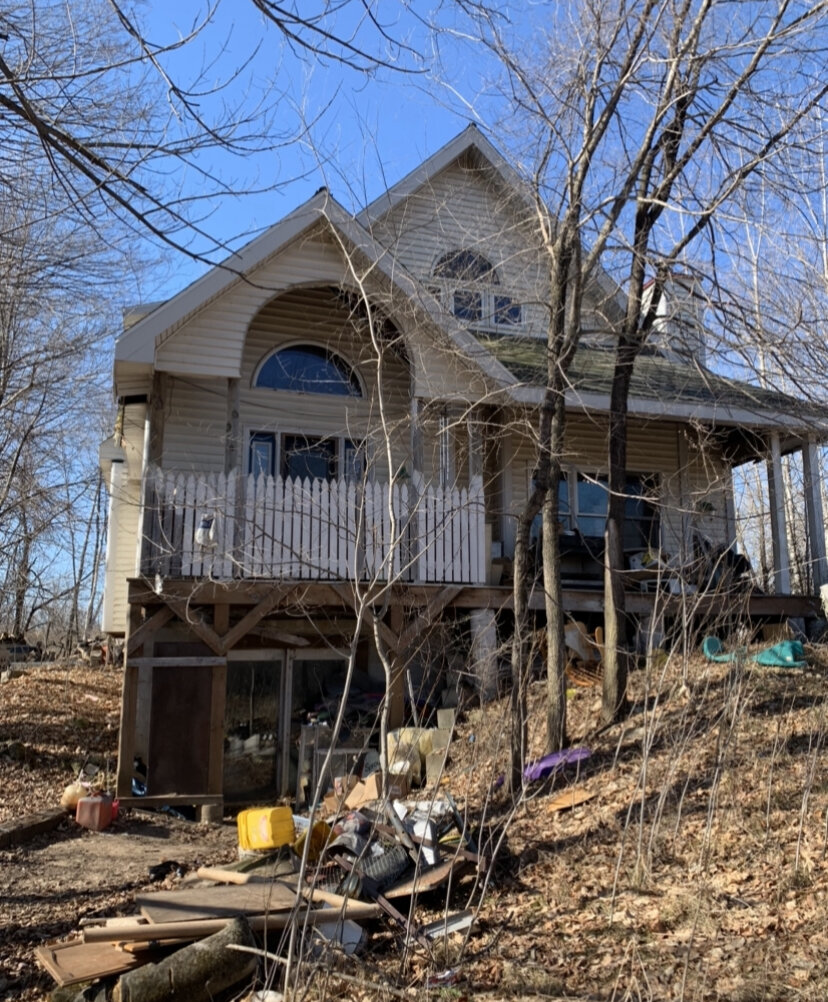
In this blog post, we’re going to go over the four things you need before lending money on a real estate transaction. Now let’s get into it. The first thing that you need to be aware of prior to considering lending money on a real estate deal is how much liquid funds do you have?
Now, this isn’t a part of the four things that you need, but asking yourself this question will determine if you should lend on a deal or if you should not lend on a deal.
Let me explain… If you do not have enough liquid funds to put into a real estate deal for six, nine, or 12 months, then you should not be a private lender on the real estate transaction. The reason behind this is real estate is an illiquid investment. When it is illiquid, it means you cannot pull your money out within a couple of weeks’ time. Normally, it takes significantly longer. On real estate deals I have personally loaned on, normally we set it up on a six-month term for repayment of the debt owed. And once we’re able to accomplish that, we receive all of our initial investment back.
1) You Need a Market Analysis of the Subject Property

Let’s get into the documents or the information you need prior to lending on a real estate transaction. The first thing that you want to ask your client or individual you’re lending money to is for a market analysis either done by a realtor or done by them showing that the amount of money your lending is at 70% or less of the fixed-up value. Now, how did we arrive at 70% or less of the after repair value? We arrived at 70% or less because when you look at profit margins, ideally investor needs to make a 15 to 20% margin in case something goes bad. Now, if they’re buying a deal with only a 10% margin built-in and a bad scenario occurs or a roof needs to be replaced, or a foundation needs to be repaired, their profit margin is pretty much eaten up, and then it puts your capital at risk if they do not have the funds to pay the difference at closing.
Now in the past, we have bought deals with too thin of margins and have learned the hard way by losing money on the deal. However, our lenders always have been paid in full, never losing a cent or any of their interest payments. We make it our number one priority to pay the private lender in full prior to us ever making a deal and even if it means that it will make us lose profit. The first thing you need to make sure of is you’re receiving a market analysis on the property showing that your client is purchasing a property for less than an all-in cost of 70% of the repaired value. An easy calculation for this is their purchase price plus rehab costs should be at 70% of the repaired value, meaning if it’s $100,000 house repaired, they should be all in at 70,000 and that’s the max you would loan them.
2) Recording a Mortgage Against a Single Family House
Now, the second piece of information you need before lending on a real estate deal is a mortgage and a note. The mortgage will be recorded in the first lien position against the property, and this will be done so that it’ll secure your funding. The buyer is unable to sell the property unless they pay you off in some way, shape, or form. What happens when you record a mortgage against the property and you record a mortgage on the deed, is if they ever go to refinance or sell the property, your mortgage will need to be paid off. And then it also allows you to take legal action if for some reason they break the agreement that you had drawn up with them.

Personally in our business, we had an attorney draft up a mortgage and a note, and this is heavily favored on our side or the lender’s side when we’re lending out money. Now, why is this? It is because we do not want to get into a situation where we end up losing money because the individual we’re lending to did not repay the note on time. There is a very severe penalty if that was the case. It is important to have a mortgage that will be recorded, and a note which details the actual terms of the mortgage agreement. If you need a copy of what we use, please reach out and we’d be more than happy to assist you. Or if you’re wondering what we give our private lenders when they lend to us, it is also this document that is heavily in the private lender’s favor.
3) What Happens If We Do an Under the Table Deal?
The next thing that you want to make sure of is that the property is going through a title company and that there is an escrow agreement set up. What does this mean? An escrow agreement is where you will deposit the money in order for the purchaser to take draws off that escrow agreement. You will approve their draws so you know how much money is being taken versus how much money is being spent. You want to make sure renovations of the property are being accomplished prior to the purchaser of the property being able to take a draw.
Now, a title company will assure you that you will be in the first lien position and there’s going to be no other judgments or clouding of the title. Title insurance is extremely important in today’s day and age. And without title insurance, you can put yourself at a very large risk of not receiving any payment at all. Again, we want to stress this again and again that you need to be in the first lien position when you’re doing lending on a single-family residence or small multi-family residence and you’re the only lender on file. Now, if this were a multifamily transaction, it would be different as those are normally done via syndication. But that is a topic for another blog post, and I will link it here if you’re interested.
4) Don’t Forget Your Homeowners Insurance!
The last thing you need to make sure of when you’re lending money on a real estate transaction is that there is homeowners insurance. And with homeowners insurance, you need to be listed on the insurance policy so if anything were to occur, you would receive payment from that insurance company as well as the borrower would receive payment from the insurance company. Also, you want to have the ability to sign off on any insurance claims that the buyer has. And this is why it’s so important that you should be listed on the insurance policy as the mortgagee and then the buyer would be the mortgagor.
Wrapping Up What You Need Prior to Lending Money in Real Estate…
The four things that you need before lending any real estate deal would be
- A Market Analysis
- 1st Lien Position Commercial Mortgage & Promissory Note Detailing the Loan Terms
- Title Insurance Policy with the Lender listing on file as well as an Escrow Agreement
- Homeowners Insurance Policy With You Listed as Mortgagee
If you have any questions on how private lending works or what the typical rates are, you can see what we offer our investors for lending on our deals. All you have to do is send us a message through the website or contact us directly at 920-215-4201. I look forward to talking to you in the future. And if you wish to partner on deals, feel free to reach out to us through the contact form and we will talk to you soon.
Contact Us
We would love to hear from you! Please fill out this form and we will get in touch with you shortly.

